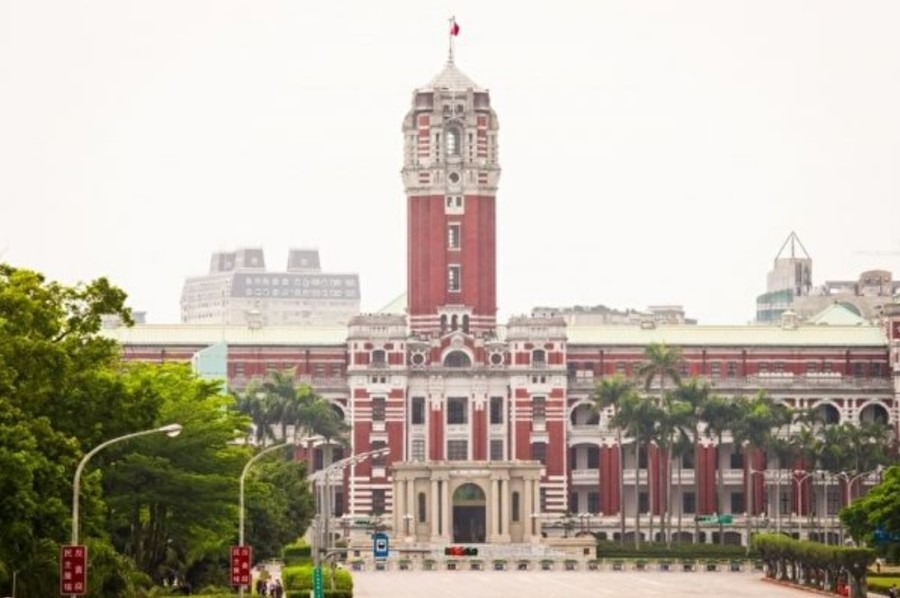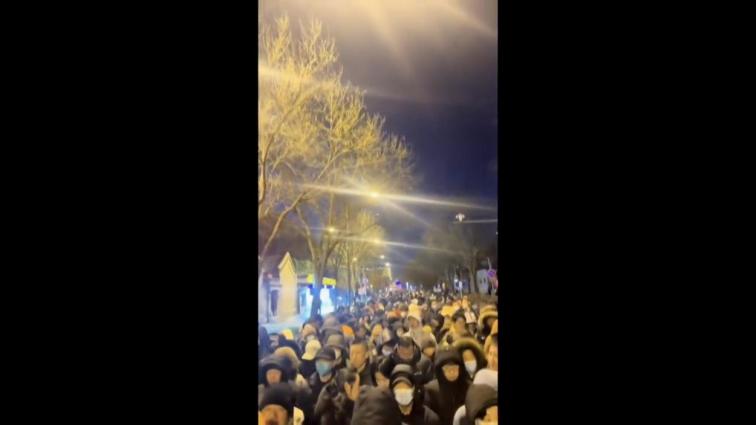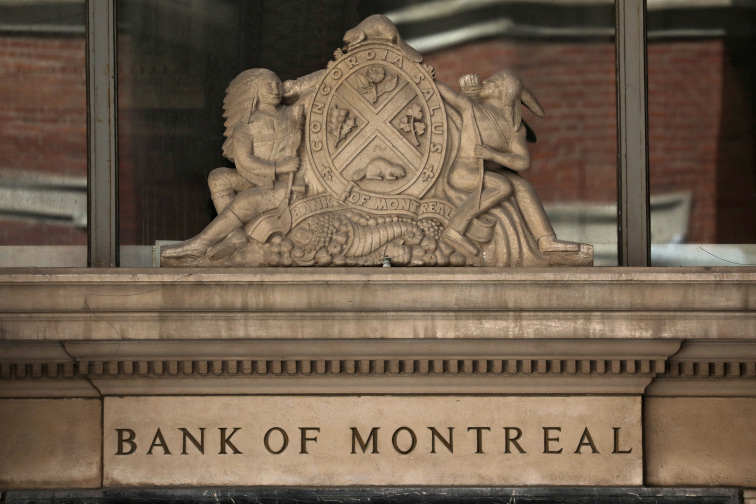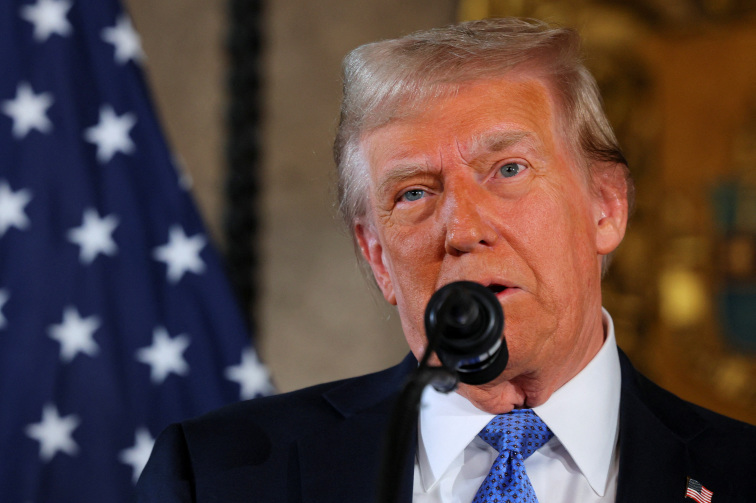Photo: Taiwan’s Presidential Office (Credit: Chen Bozhou /Dajiyuan)
[People News] Taiwan’s National Security Bureau (NSB) has released a report detailing five major tactics recently used by the Chinese Communist Party (CCP) to infiltrate Taiwan. These include: colluding with gangs to develop armed internal agents, setting up underground banks to lure defectors, using temples to entice military personnel to leak secrets, building networks through the internet, and using disguised identities to contact government personnel.
According to Radio Free Asia (RFA), Taiwan’s Ministry of National Defence, Ministry of Foreign Affairs, Presidential Office, and National Security Council have all recently uncovered Chinese espionage cases, several of which involved individuals with Democratic Progressive Party (DPP) affiliations.
The NSB report points out that the CCP exploits Taiwan’s democratic and open environment, using roundabout and covert intelligence tactics to increase infiltration efforts. Since 2020, 159 people have been indicted in CCP spy cases. Tactics include recruiting retired personnel to influence active ones, networking online, bribery, and debt coercion. The CCP has targeted military and government institutions to obtain classified information and develop spy networks in Taiwan using increasingly diverse and comprehensive methods.
DPP legislator Lin Chuyin told RFA that many of those involved are lower-ranking military personnel who fall into commercial loan traps. Ads embedded in online platforms like Facebook or news websites specifically target soldiers.
Ruling Party Legislator: Soldiers Targeted with Debt Traps — Military ID Used to Get Loans
Lin Chuyin gave an example: “In loan advertisements, they directly say, ‘If you are a professional soldier with a military ID, it’s easy to borrow.’ Normally, when borrowing money, people use valuable items like houses or cars as collateral, or pawn valuables like Rolex watches or diamond rings. But now, just having a military ID is enough to get a loan. Investigations revealed that initially, the amounts borrowed were only tens of thousands of NT dollars, but the interest rates were later raised, piling interest upon interest until repayment was impossible. At that point, they were asked to take photos of military fortifications or provide superior officers’ contact lists in exchange.”
One of the five major infiltration methods listed by the National Security Bureau is “using gangs to develop armed insiders.” This refers to the CCP recruiting gang members by offering to cancel their debts, targeting active-duty military personnel in financial distress, and having them gather sensitive military information. Gang members are also asked to raise the five-star red flag and act as insiders to aid sabotage operations during a CCP military attack on Taiwan. Through underground remittance channels operated by gangs, CCP funds are brought in to recruit retired military personnel to collect name lists of senior military officers, foreign missions in Taiwan, military radar stations, joint training bases, and other critical locations, with coordinates and photos. They attempt to organise former comrades-in-arms to plan assassination missions.
Another infiltration tactic is “setting up underground banks to lure people into defecting to the CCP,” which involves recruiting Taiwanese citizens and retired military personnel to establish shell companies as organizational outposts, open underground banks and casinos, and then persuading or coercing active-duty soldiers into gathering military secrets, signing loyalty pledges to the CCP, or piloting military helicopters to defect. In terms of “using temples to lure military personnel into spying,” the CCP provides funding to temple leaders, using religious activities like spirit calming, divination, and fortune-telling to approach active-duty military personnel. They then entice them to wear military uniforms and pose with the CCP flag in videos pledging allegiance, or to hand over defence plans.
Furthermore, “building networks online” involves using social platforms like Facebook, LINE, and LinkedIn to reach current or retired soldiers in urgent need of money through online loan offers, asking for sensitive information in return for debt repayment or recruiting fellow soldiers. Transactions are made with virtual currency to evade detection. The fifth method, “using identities as cover to approach government personnel,” uses networks of Taiwanese businesspeople in China and other intermediaries to covertly contact government officials or lawmakers in attempts to obtain classified government information.
Lin Chuyin noted that some of these activities are conducted under the guise of loan companies, used to extract Taiwanese technology, secrets, and personal connections. A previous case in the Hsinchu Science Park involved “fake recruitment” as a cover for infiltration and technology theft. Recently, a professor from the Orchid Biotechnology team took the orchid research results to China.
Gang Members Disrupting Political Rallies — Suspected CCP Links
Lin Chuyin also explained why Taiwan amended the “Organised Crime Prevention Act.” A major reason was incidents involving the pro-unification Chinese Unification Promotion Party recruiting gang members to attend political rallies and provoke disturbances. In one case, a young person outside National Taiwan University was chased and beaten with iron rods. Gangs have also been used to disrupt public order during temple activities and election campaigns. National security officials later traced some of these activities back to CCP interference.
Kung Hsiang-sheng, associate research fellow at the Institute for National Defence and Security Research, told RFA: “They use gangs to recruit Taiwanese gang members, who already run underground finance operations. These gangs interact with desperate individuals, creating a chain of exploitation. Those who are financially cornered will agree to exchange information for money, regardless of how high or low-level the info is; the CCP is willing to pay, just at different rates. To someone inside the system who needs money, it’s a lifeline.”
Kung emphasised that these infiltrators can penetrate the system from the outside, forming a feedback loop. He said such cases have increased over the past year, making them hard to defend against, especially given the wide range of backgrounds among Taiwan’s volunteer soldiers, many of whom face economic hardship.
Low-Ranking Soldiers Piecing Together Intelligence Networks — Legislator Urges Financial Relief Measures in Military
Lin Chuyin also stated that the Chinese side uses a two-pronged approach, targeting both active-duty and retired personnel, to build relationships and infiltrate social networks, such as senior soldiers pulling in junior ones. Even active-duty soldiers in roles like drivers, sentries, or traffic control—considered low-ranking—may still have access to sensitive information such as the schedules of the military, the president, or the premier due to the nature of their duties. The fact that many are focusing on legislative assistants and grassroots military personnel shows that infiltration is happening at all levels.
Tseng Chien-yuan, Chairman of the Citizen Congress Watch and Executive Director of the Taiwan Democracy Watch, said in an interview with Radio Free Asia that the National Security Bureau’s definition of “informants” is too narrow. Due to close cross-strait relations, many people have relatives or business partners in mainland China, and these interpersonal ties have been exploited by the CCP.
Academic: Informants Not Always Official — Personal Ties Are a Major CCP Weapon
Tseng Chien-yuan, chairman of Citizen Congress Watch and executive director of the Taiwan Democracy Academy, told RFA that Taiwan's definition of “informant” is too narrow. He pointed out that due to close cross-strait ties, many Taiwanese have relatives or business partners in China, which creates networks ripe for CCP exploitation.
He explained: “It’s not always formal agents collecting intelligence. Often, it’s just someone asking a friend—any bit of information can be stitched together into a full picture.”
Tseng said recent espionage cases often involve multiple layers of operatives who may not even know each other. The money gets distributed down the line, creating a vast intelligence web. He added: “CCP agents also take advantage of perks—they might report travel or gifts as business expenses while pocketing extra for themselves. That’s why there are so many people engaged in CCP intelligence work—it’s lucrative.”
Tseng also noted that Taiwanese NGOs are key CCP targets. “They don’t need complete data—just bits of information. If a person or institution is on their radar, even minor details are valuable to them.”
Taiwan NSB: Loyalty Polygraphs for Presidential Security Units Every Six Months
Some legislators expressed concern about insider leaks in presidential security units that could lead to assassination attempts. On April 23, NSB Deputy Director Huang Ming-chao responded that in addition to regular background checks, security agents are also subject to polygraph tests. He confirmed that loyalty assessments are conducted every six months for personnel guarding the President and Vice President.
Kung Hsiang-sheng said, “Increasing the frequency does help. You never know if someone has been approached or manipulated in their daily life.”










News magazine bootstrap themes!
I like this themes, fast loading and look profesional
Thank you Carlos!
You're welcome!
Please support me with give positive rating!
Yes Sure!